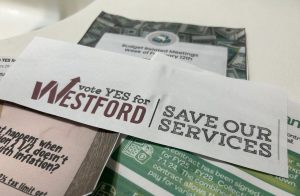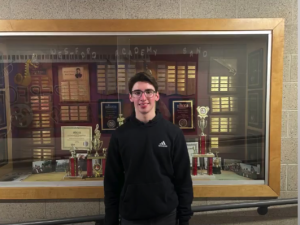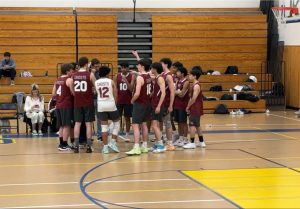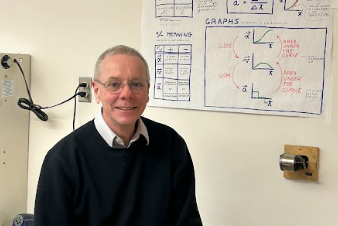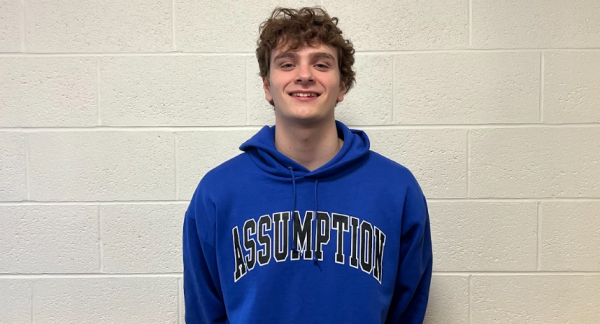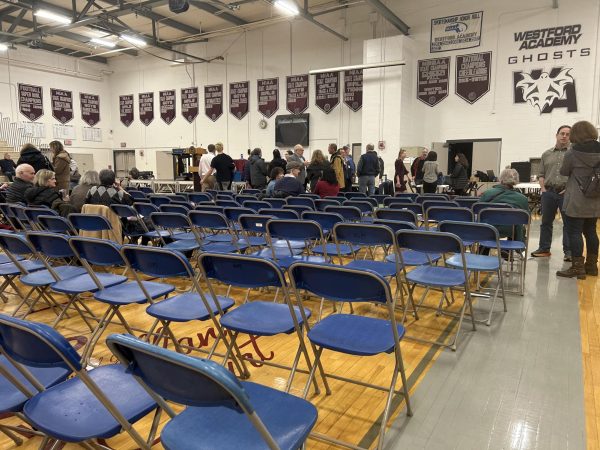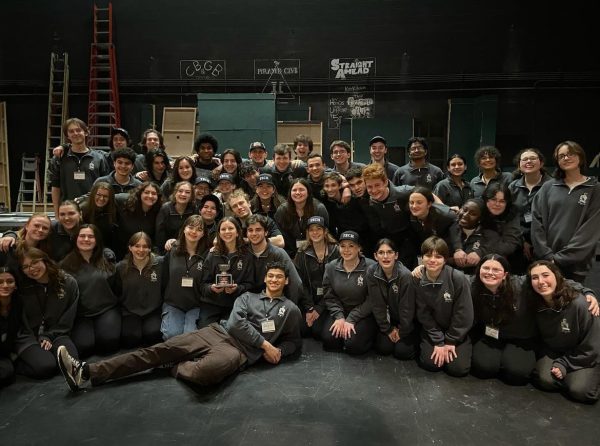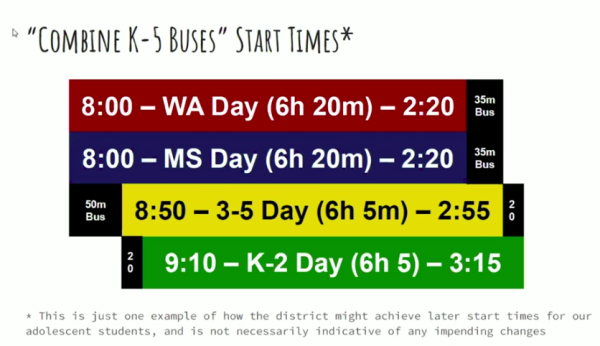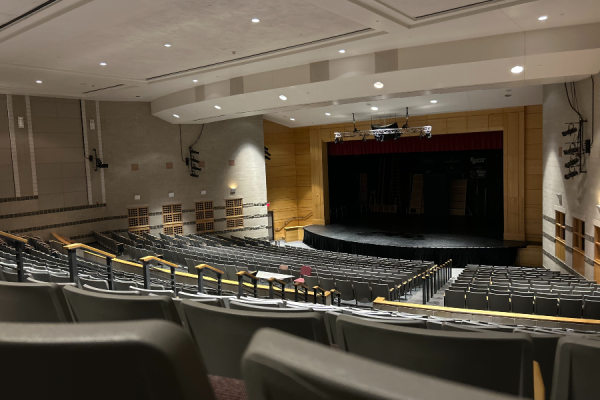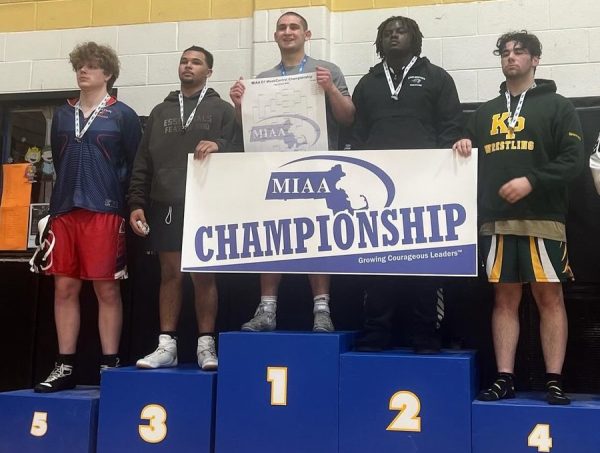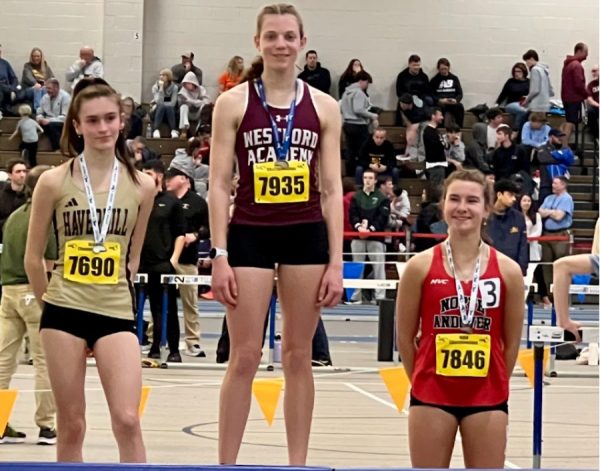Article 13 passes through town meeting
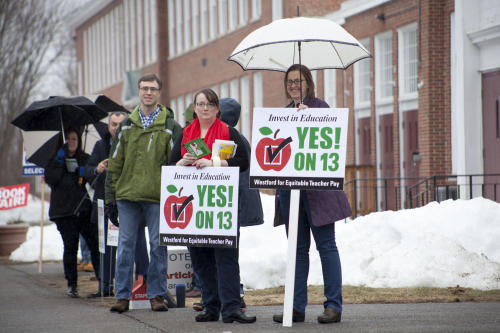
Photo courtesy of the Lowell Sun/Chris Lisinski
March 25, 2017
On Saturday March 25 at the Abbott School, the town of Westford gathered for their annual town meeting to discuss and vote on various town issues. While an annual event that many attend each and every year, this year’s meeting had special interest to many town residents. In the end, article 13 passed both a town meeting vote and a Board of Selectmen vote, putting it on the ballot in May for final voter approval.
Article 13 raised the important issue of teacher salaries to the forefront of discussion in Westford yet again. The Article was raised to either approve or deny a motion to get a $1.6 million budget override in order to increase the salaries of teachers in the Westford Public School system.
Notable attendees at the meeting were Superintendent of schools Bill Olsen, the school committee, and the Board of Selectmen. There was also a large presence of teachers and other faculty in support of article 13.
The meeting began at 10am, with discussion on article 13 slated to begin around 11 am, per order of veteran moderator Ellen Harde.
After a handful of articles were dealt with early on by town meeting, Harde ended discussion on article 11 in order to begin the long awaited debate over article 13, which was the reason this meeting was one of the most full in a long time.
School committee member Tom Clay, who is in favor of the override, was given several minutes to present his side through a presentation. The presentation ranged from noting the six percent pay gap between most surrounding communities’ and Westford’s teachers, to talking about the tax burden that will be levied on citizens if this override is to pass in May. The average tax bill would increase about $180 over a three year period, according to Clay.
Furthermore, as evidence for the need for rising salaries, Clay noted that the school is in the top five percent for performance while spending in the bottom twenty percent per pupil. The hope would be after the override passes, that the new contracts will be negotiated by next school year.
Clay concluded his remarks by saying that this vote was for an investment in the future of Westford schools for years to come.
Before a debate could commence, a citizen proposed a motion to have the vote on article 13 be held by way of secret ballot. The motion was agreed upon by town meeting and the discussion could now begin.
Questions were then allowed to be raised by both sides of the issue, along with those who were undecided and needed clarification on certain points to make a more informed decision.
One important question raised was what the definition of Prop 2 1/2 was, which is a limitation on the raising of funds through property and real estate taxes. The Massachusetts rule states that a town government cannot raise property and real estate taxes more than 2.5 percent per year. In order to comply with this, the tax increase will be gradual over multiple years if the override is to pass the vote in May.
From the hours of 11:10 to abut 12:30, both sides presented their arguments from their assigned microphones, as well as variety of questions and comments were raised regarding the important issue at hand.
Some notable arguments from those who support article 13 included keeping teachers in the district, restructuring the past unfair contracts, as well as being able to attract new teachers and keeping house values high in the town.
Those opposed also raised some interesting points to dissuade residents from allowing the motion to pass through town meeting. Many of these arguments, including one from selectman candidate Dennis Galvin, pertained to how this deal was essentially being negotiated in public, and how the school committee seemed to be speaking for the teacher’s union. Others argued that the hours teachers put in do not signify a pay raise, and others expressed disdain that other town employees seem to be unable to get as much support for raises of their own. Some even went as far to say that Clay and others were using misleading statistics when showing the pay gap as compared to other districts, saying that they had neglected to show the salaries with the previously agreed to 2.5 percent salary increase.
One point that the opposition brought up that caught all residents’ attention was that about a steady increase of taxes every year after the initial three year gradual increase. The taxes would rise about 2.5 percent each year, in compliance with Prop 2 1/2.
Generally, questions and comments were done in a respectful manner, however Harde often had to cut people off and take control in order to move in an efficient manner and get to the vote itself.
After over an hour of discussion, Harde put an end to the debate and called for the vote to begin. Each voter had a piece of paper with both yes and no on it, and were instructed to tear the part off that they wanted to use to vote, and place it in the ballot box. Despite a small mishap with a broken ballot box and some loose ballots, all issues were handled and the counting began. The meeting broke for lunch and would announce the results and wrap up article 13 immediately following the break.
When the meeting reconvened, the vote had been counted. The article carried by a vote of 687-204, and now the selectmen would need to vote to send it to the May ballot. The selectmen meeting was brief, with only one audience question before they voted. The selectmen voted to send the article to the ballot by a vote of 3-1, with one member abstaining their vote. Light applause was heard and the meeting moved on.
The next and final step for this budget override request is that it must get a majority Yes vote by the town in order to be put into action. The vote will take place May 2nd.


